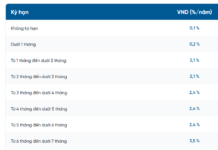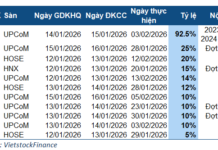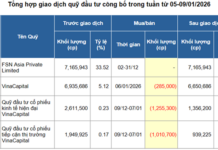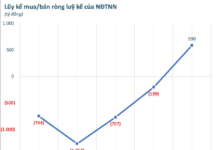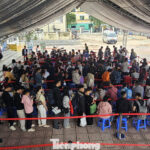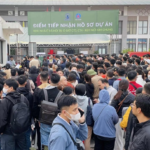The Vietnamese government has issued Decree 302/2025/NĐ-CP, detailing the National Housing Fund and the implementation of Resolution 201/2025/QH15 by the National Assembly on special mechanisms for social housing development. Under this decree, the Central Housing Fund, established under the Ministry of Construction, and local housing funds managed by provincial People’s Committees, will play pivotal roles.
Enhancing Organizational and Operational Capacity
These funds operate as public service units with legal status, independent seals, and autonomous accounting systems. They are permitted to open accounts at the State Treasury or commercial banks. Provincial authorities can establish new funds, reorganize existing ones, or assign current funds, provided they comply with legal regulations.
Their primary mission is to develop and expand the supply of social housing to meet rental demands. Funds are authorized to invest in social housing projects with integrated technical and social infrastructure, repurpose public housing assets for rental use, and purchase social housing from developers.
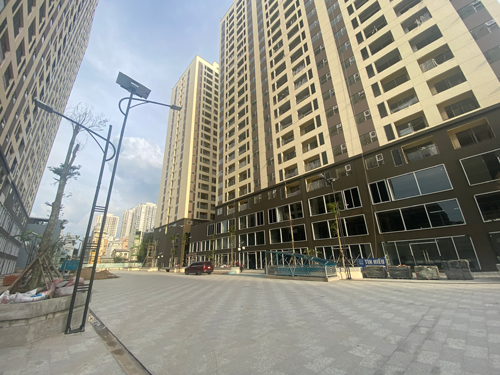
The Lý Thường Kiệt Social Housing Project (Diên Hồng Ward, Ho Chi Minh City), comprising 1,254 apartments, is nearing completion. Photo: QUỐC ANH
Additionally, funds can commission, receive, or transfer housing from state-owned enterprises, accept resettlement housing or donations from organizations and individuals, and purchase commercial housing for rental to government employees and workers.
Funds are also responsible for managing and operating all housing under their purview, ensuring rentals adhere to specified mechanisms, target the right demographics, and align with social welfare goals.
Dr. Huỳnh Phước Nghĩa, a lecturer at the University of Economics Ho Chi Minh City (UEH), notes that Decree 302/2025/NĐ-CP provides comprehensive and clear guidelines on the operational mechanisms, authority, and organizational structure of the National Housing Fund.
However, Dr. Nghĩa emphasizes that success hinges on organizational and management capabilities. As a public service unit with financial autonomy, the fund’s effectiveness depends on the quality of its personnel, strategic planning, project execution, and inter-sectoral coordination. “A robust mechanism alone is insufficient; a competent execution team is essential for smooth operations,” he asserts. He suggests that granting the fund appropriate recruitment authority could attract top experts, fostering efficient, transparent, and sustainable operations.
Dr. Nghĩa also highlights that the housing fund model, while not new, mirrors successful implementations in Singapore and South Korea. In Singapore, autonomous housing development agencies supply 50-60% of the market’s housing by leveraging favorable land access. Vietnam’s approach, allowing the National Housing Fund to use state-planned land, collaborate with the private sector, and access commercial bank financing, is considered more flexible than many European models reliant on private resources. “With proper execution, the fund could significantly impact the market, targeting social housing, worker dormitories, and specialized housing like government residences or disaster relief housing. It could also invest in temporary or resettlement housing in collaboration with local authorities,” Dr. Nghĩa analyzes.
Focusing on Rental Housing Development
Cao Thị Thanh Hương, Senior Manager of Research at Savills Vietnam, underscores the success of the housing fund model in Singapore and South Korea, where low-interest, long-term loans benefit citizens, and participating enterprises enjoy investment incentives and access to planned land. This creates a win-win scenario: buyers receive financial support, and developers gain motivation to build affordable housing. Such mutual benefits lead to a more balanced and sustainable market.
From a business perspective, Lê Hoàng Châu, Chairman of the Ho Chi Minh City Real Estate Association (HoREA), anticipates that the National Housing Fund will provide diverse and flexible capital mobilization channels for social housing development. Developers will gain stable financial resources, enabling them to create projects that offer reasonably priced housing to those in genuine need, thereby advancing the government’s goal of developing at least 1 million social housing units.
According to HoREA’s Chairman, the fund will also establish land reserves for social housing projects, enabling developers to access clean land more efficiently, reduce costs, and expedite project timelines. Additionally, enterprises involved in social housing can partner with the fund to secure long-term land and resources.
Dr. Phạm Viết Thuận, Director of the Institute for Natural Resources and Environment Economics in Ho Chi Minh City, observes that urbanization has consistently disadvantaged low-income workers and industrial laborers in accessing suitable housing. He believes the establishment of the National Housing Fund, operating under a build-own-rent model, will be more effective and sustainable.
The fund can proactively secure land, invest in infrastructure, and construct social housing for rent in densely populated areas or near industrial zones, where demand is high and urgent. “We’ve seen instances of social housing buyers using luxury vehicles or speculating through power of attorney. Focusing on rentals would significantly reduce such issues,” he notes.
He stresses that low-income workers and the poor have long aspired to stable, affordable housing. Social housing rental projects priced below room rentals, offering better quality and professional management, could enhance the living standards of hundreds of thousands of families and alleviate urban living pressures.
However, rental eligibility criteria must be clearly defined to ensure social housing serves its intended purpose of providing basic housing for workers without overly restrictive conditions.
A Tool for Real Estate Price Regulation
Dr. Phạm Viết Thuận hopes the National Housing Fund will receive sufficient authority and resources, including preferential loans, clean land, and exemptions from land use fees and investment procedures. This would not only support vulnerable populations but also stabilize real estate prices.
“Amid rising housing costs and escalating material and financial expenses, the Prime Minister’s decision to establish the National Housing Fund for social housing and worker housing rentals is highly encouraging. It will serve as a crucial tool to curb real estate price increases and stabilize the market,” Dr. Thuận concludes.
Housing Fund: Success or Failure Hinges on Implementation
The National Housing Fund is a proven model that has demonstrated remarkable success in Singapore and South Korea.
Will the National Two-Tier Housing Fund Officially Cool Down Property Prices?
Experts suggest that only when the actual supply from the National Housing Fund materializes will house prices have a chance to stabilize. In the initial phase, this policy primarily influences investor sentiment.






